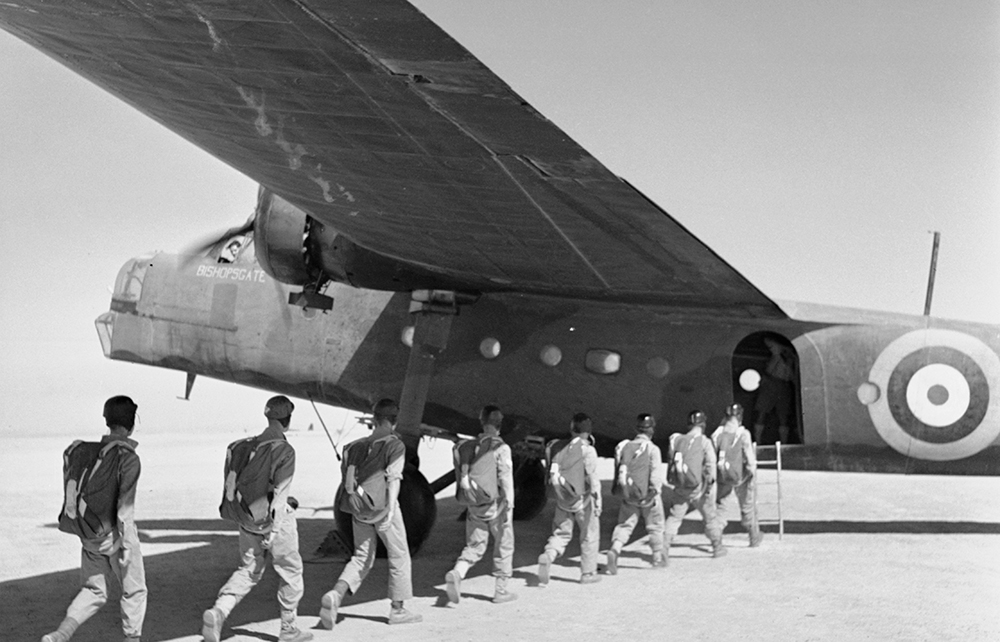‘The boy Stirling is quite mad, quite, quite mad. However, in a war there is often a place for mad people.’ Field Marshal Bernard Montgomery was referring to David Stirling, the man largely credited with raising the Special Air Service (SAS) in the summer of 1941.
Myth has always surrounded the formation of the SAS and one of the most abiding legends is that it was down to one man alone, David Stirling, whose L Detachment of six officers and 60 men grew into 1SAS. Gavin Mortimer’s vivid and meticulously researched book, 2SAS, does a good deal to redress the balance. It acknowledges the importance – too long overlooked – of David’s eldest brother, Bill Stirling, who was to command 2SAS, and other remarkable men who were among the SAS’s founding fathers.
The difference in character and temperament between the brothers was stark. David was charismatic, brazen and adept at self-promotion. It was typical of him that he should choose The Phantom Major as the title of his biography, a moniker apocryphally given to him by Field Marshal Erwin Rommel. Earlier this year, the popular BBC series SAS: Rogue Heroes, based on the book by Ben Macintyre, did little to dispel the image of David as an attractive, buccaneering figure without whom the SAS would never have been raised. Bill, however, was thoughtful and steadfast, a good judge of character who knew that planning and attention to detail were key to successful guerrilla operations behind enemy lines.
If a number of senior officers shared the belief that the nature of the second world war, particularly the desert campaign, offered considerable scope for guerrilla warfare, few agreed on what form it should take. Churchill, never short of memorable phrases such as ‘set Europe alight’, ‘butcher and bolt’ and ‘attack the soft underbelly’, did not foresee how many irregular forces his words would spawn: the Special Operations Executive (SOE), the Commandos, the Long Range Desert Group (LRDG), the Special Boat Squadron (SBS), Popski’s Private Army (No.







Comments
Join the debate for just £1 a month
Be part of the conversation with other Spectator readers by getting your first three months for £3.
UNLOCK ACCESS Just £1 a monthAlready a subscriber? Log in